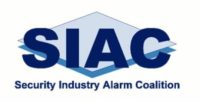In a move that makes Dallas the largest city to pass a verified response policy, the city council voted 8 to 5 in favor of implementing the proposal, which will mean Dallas police will no longer respond to commercial burglar alarms unless they have been verified through private security guards. In addition, while police still will respond to residential alarms, false alarm fines will increase.
The initial verified response proposal, which called for both residential and commercial verified response but was later changed to commercial only, was crafted after an efficiency study called for by the city council noted that 97 percent of calls were false alarms, according to Rick Watson, Dallas police lieutenant.
"It's a lot of time and it's a lot of man hours responding to false alarms," Watson said. In 2004, Watson estimated Dallas police expended approximately 47,000 man hours answering burglar alarm calls.
By implementing the commercial verified response policy, the city of Dallas will lose money from fines and fees each year, an amount that the city council estimates to be between $200,000-$250,000 per year. Although the North Texas Alarm Association (NTAA) and others in the security industry estimate the amount to be even higher, the city council is more concerned with the time of police officers and the city believes it will save valuable man-hours by not responding to commercial burglar alarms.
Members of the NTAA, Security Industry Alarm Coalition (SIAC) and many business owners that packed the city council chambers on Dec. 14 are shaking their heads. "We were very disappointed that the city council would accept a proposal that was so strongly opposed by the citizens of Dallas that filled the city hall chambers," said Chris Russell, NTAA president.
SIAC members, including Stan Martin, executive director of the coalition, said they tried to educate the Dallas city council on alternatives to verified response, including enhanced call verification, in hopes that the city council would not pass the proposal.
The day of the vote, Dave Levinthal, staff writer at the "Dallas Morning News" who closely followed this story, estimates more than 100 people were in the city chambers.
"The atmosphere on the day of the vote was such that there were many more people there against the council vote than there were for the council vote," Levinthal said. "A dozen or more [people] against the vote went up and spoke to the council before the vote took place."
But city council members were not to be swayed. According to Levinthal, the Dallas police chief and members of the city's police associations backed up the verified response policy.
"One of the largest issues in Dallas is the high crime rate that the city has, and in [the council members'] opinions, they wanted to free up more police resources to respond to crimes other than suspected burglaries," Levinthal added.
The commercial verified response policy is set to take effect Feb. 1, although it will roll out in phases. Beginning in February, the city will stop issuing and renewing alarm permits to businesses. Those businesses with existing permits still will receive police response until their permits expire.
Alarm companies will need to hire private security guards or have businesses contract their own security guards to comply with the policy, Russell said.
Whether the policy will take effect when scheduled remains to be seen. "This might not happen in February as there are too many issues to resolve first," Russell said. For one, the city's alarm permits are exchanged between the city and the business owners without the alarm company getting involved. "Somehow, the police will need to put the alarm company in the loop so that they know who has a permit and when it expires," he added.
In Levinthal's opinion, getting the policy implemented will be the responsibility of more than just one party. "Seemingly, the burden will fall on the police department and the various alarm companies," to keep track of who has an existing permit, he said.
Other cities that have passed verified response policies include Salt Lake City, Las Vegas and Milwaukee.
Get our new eMagazine delivered to your inbox every month.
Stay in the know on the latest security marketplace trends.
SUBSCRIBE TODAY!Copyright ©2024. All Rights Reserved BNP Media.
Design, CMS, Hosting & Web Development :: ePublishing
